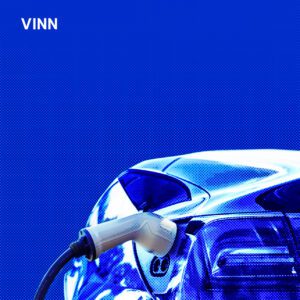Rebates for electric vehicle chargers help offset the cost of installing a Level 2 charger
Federal and provincial incentives are available to encourage purchasing or leasing all-electric (EV) and plug-in hybrid vehicles (PHEVs). Federal and provincial EV incentives can be combined to help offset higher purchase and lease costs. Most provinces in Canada now offer EV incentive programs. However, not every province offers incentives or rebates to purchase EV chargers. When you buy or lease an EV or PHEV, you can expect to charge 80% of the time at home, while the other 20% occurs at public charging stations. Therefore, you will have to install an EV charging station at your house unless you live in a condo building that has EV chargers. All electric or plug-in electric vehicles have an adapter to plug into a regular wall outlet. This type of charging is called Level 1 (120-volt). Level 1 charging is convenient but slow. Therefore, you will want to install a Level 2 (240-volt) charging station. Level 2 chargers are the most common for at-home charging and will charge your car at a faster rate. Provincial and municipal EV charging rebates help cover the costs of purchasing and installing a Level 2 charger at your house, apartment building, or workplace.
British Columbia, Quebec, Prince Edward Island, New Brunswick, Yukon, and the Northwest Territories, offer EV charger rebates. In comparison, Manitoba and Nova Scotia offer a financing option. Additionally, some individual cities offer EV charger incentives or financing options.
Are you ready to never pay for gas again? This article breaks down what provinces and territories offer EV charger incentives and rebates 
British Columbia’s Rebates for EV Charging Stations
In partnership with BC Hydro and FortisBC, the Government of BC’s CleanBC Go Electric Program offers a rebate for EV chargers for single-family homes, apartment and condo buildings, and office buildings.
- Single-family homes: A rebate of up to 50% (maximum of $350) on purchasing and installing an eligible Level 2 EV charger.
- Apartment/condo buildings and office buildings: Up to $97,000 to install EV chargers in multiple parking stalls or only a few chargers. Or up to $14,000 for standalone EV chargers.
- Indigenous communities and businesses are also eligible for EV charger rebates:
- Single-family homes: rebates of up to $750 per station.
- Multi-unit residential buildings: rebates of up to $4,500 per station.
- Workplaces: rebates of up to $4,000 per station.
The following BC communities offer additional EV charging station rebates: Port Hardy, Nanaimo, Terrace, Whistler, Langley, Victoria, and the District of Saanich.
Manitoba’s Options for Home EV Infrastructure
Although Manitoba does not offer rebates for EV chargers, residents can apply for a Home Energy Efficiency Loan, where Level 2 charges are eligible. The Home Energy Efficiency Loan is a financing option for Manitoba residents who want to make energy upgrades to their homes.
Quebec’s EV Charging Station Incentives
Quebec offers an extensive EV incentive program. Quebec provides homeowners with a $600 rebate for Level 2 charging stations and multi-unit buildings for rebates of up to $5,000 per station.
Additionally, the following Quebec cities offer EV charging station incentives: Berthierville, Dorval, East Angus, l’Épiphanie, Farnham, Granby, Joliette, L’Assomption, Lavaltrie, Magog, Marieville, Nicolet, Sherbrooke, and Thetford Mines.
Prince Edward Island’s Free Level 2 EV Charger Program
Residents of Prince Edward Island who purchase or lease an EV or PHEV through the province’s Electric Vehicle Incentive program can receive a free Level 2 charger. Installation fees are not included.
New Brunswick’s EV Home Charging Station Rebate
Through its Plug-In Electric Vehicle program, New Brunswick offers a rebate of up to $750 for a Level 2 electric vehicle home charging station.
Yukon’s Level 2 Charger Rebates
The Yukon’s Good Energy Rebates offers rebates for Level 2 chargers for homes, commercial and multi-unit residential buildings, and municipal or First Nation government-owned buildings.
- Personal residences: rebates of up to $750.
- Multi-unit/commercial buildings: rebates of up to 50% of total costs to a maximum of $4,000 per installed level 2 EV charger.
Municipal and First Nation government buildings: rebates of up to 90% of total costs to a maximum of $9,000 per charger.
Northwest Territories EV Charger Incentives
The Arctic Energy Alliance provides incentives for EV chargers in the Northwest Territories. Residents can receive $500 for a Level 2 electric vehicle charger.
Which Provinces Don’t Offer Electric Car Charging Station Rebates?
Ontario
- Ontario does not provide a rebate for electric vehicle chargers. But you can receive a $1,000 provincial incentive to purchase used EVs or replace your old gas vehicle with an EV.
Alberta
- The province of Alberta does not offer any incentives to purchase EVs, PHEVs, or EV charging stations. However, Alberta residents can apply for federal incentive programs.
Saskatchewan
- Saskatchewan has no EV or PHEV incentive or charger rebate programs. Residents of Saskatchewan can still apply for federal iZEV incentives. However, the city of Edmonton offers The electric vehicle charger & E-Bike Rebate (ECEB) Program.
Newfoundland & Labrador
- Newfoundland & Labrador has a $2,500 incentive to purchase new or used all-electric vehicles but does not offer any incentives for the EV charging stations.
Nunavut
- Currently, Nunavut does not have an electric vehicle incentive program. Residents can still apply for the federal EV incentive program.
Read Next: PHEVs and EVs eligible for incentive programs, guide to buying a used EV, or VINN’s top list of the best electric sedans.
At VINN, we work directly with you to guide you through the process of finding a new car. Our vehicle experts will work with you to ensure that you get the best value for the right car, and you can also browse our inventory.
Happy driving! 🚘 Tell us about your favorite vehicles or fun car facts by tagging us on Instagram @vinncanada or Twitter @vinnauto.








